State of The Nation: Why Labour, Civil Society Should Confront State Governors
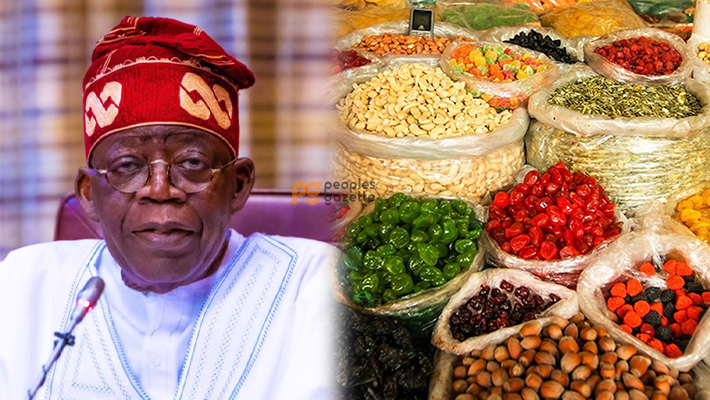
President Bola Tinubu
By Editorial Board
The decision by Nigeria Labour Congress, NLC to protest against the economic hardship in the country, is a welcome development.
In fact, it’s high time Nigerians confront government and demand for meaningful and productive leadership from all levels of governmens.
It is also right that the NLC should provide leadership for consistent protest that should involve the Civil Society Groups, National Association of Nigerian Students, NANS, Market Men and Women, Drivers Union and all the axillary Oil Workers Union in the country.
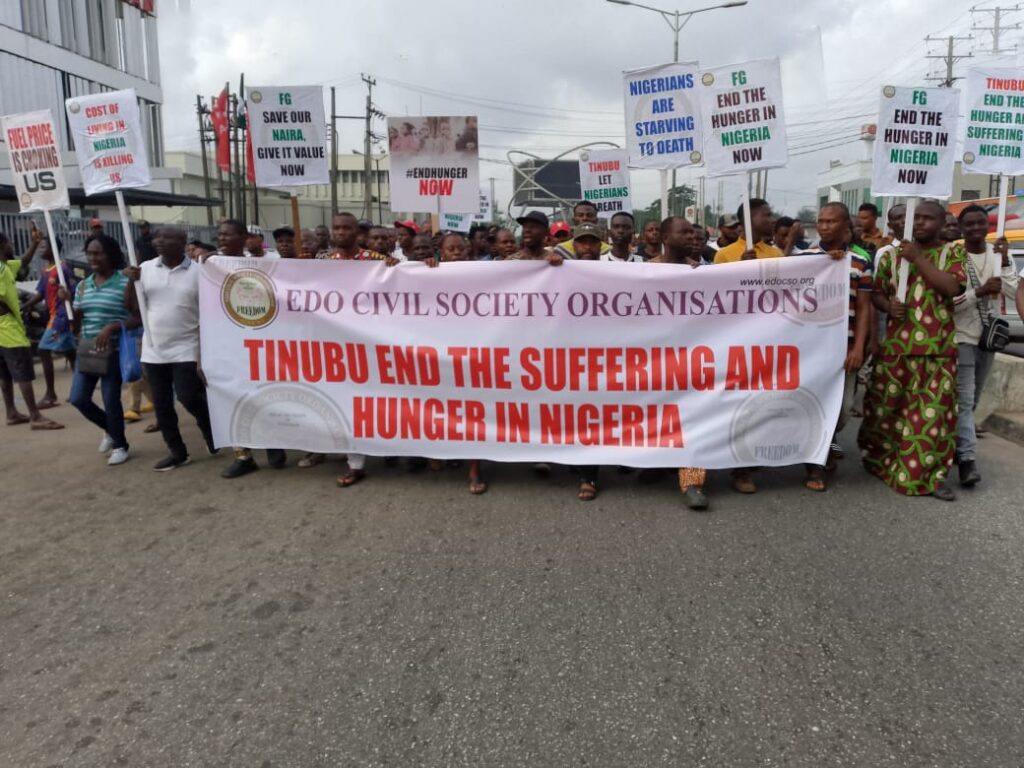
Edo Civil Society protest in Benin City recently
In doing so, the NLC and other protesters must refocus and localize their demands to reflect the reality of challenges facing Nigerians across the 36 States.
Sadly, the recent protest in some states, particularly the South West and South South states exposed the poor ideological strategy of the current NLC leadership. It also showed the erosion of dynamism amongst the Civil Society Groups.
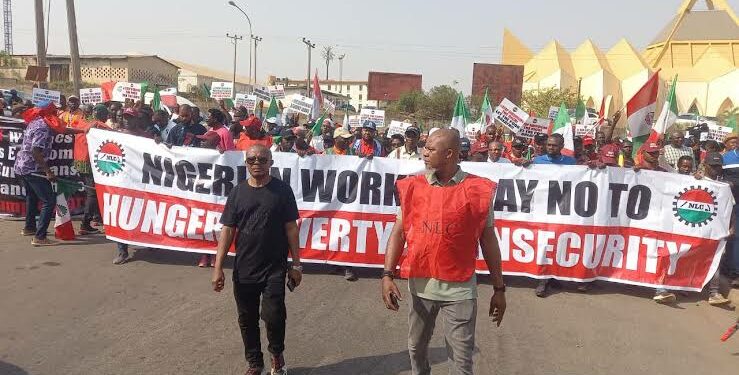
President of NLC, Joe Ajaero leading the recent aimless protest
Every social struggle must be local to achieve results. Nigerians watched with consternation, banners with inscription like “Bola Tinubu, we are hungry” in some state capitals, including Edo, Delta, Lagos and others states in Southern part of Nigeria.
In some cases, like Edo State, government representatives joined protesters to demand for food from the Federal Government. This is a clear demonstration of systemic failure in the aluta continua struggle.
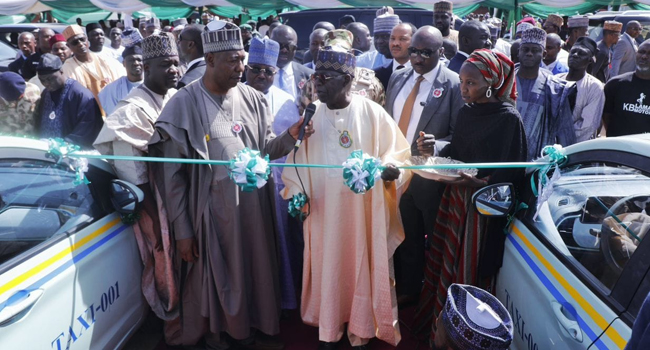
President Tinubu in Borno, commissioning 107 electric taxis for mass transist transportation to cushion the effect of fuel subsidy removal
Since when did the oppressors become the harbinger of restoration of change? How come the tormented have surrendered their fate to their tormentors.
Apart from the removal of fuel subsidy which many Nigerians had clamoured for, because of the endemic corruption perpetrated by the Nigerian National Petroleum Corporation, NNPC and oil markerters, and the embarrassing devaluation of the Naira, the present economic hardship facing Nigerians has nothing to do with what President Tinubu has not done well.
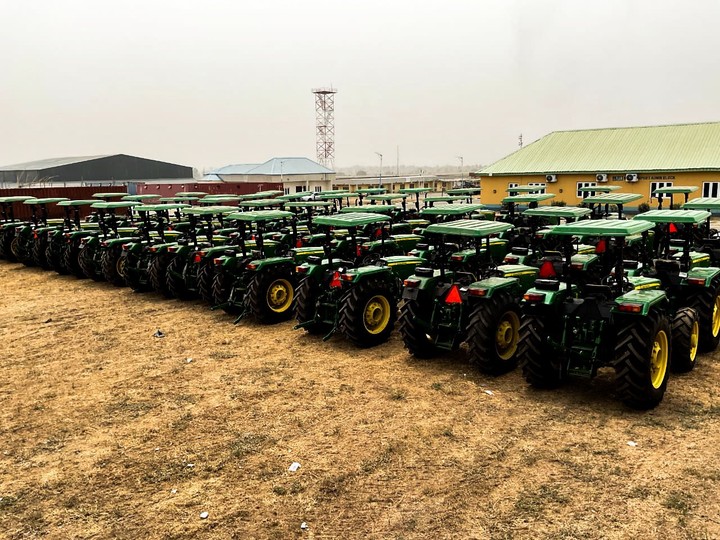
Farm Tractors numbering 300 of the 3000 promised by Niger State Governor Bago
In fact, Tinubu’s interventions soon after he removed petroleum subsidy, are well enough to stabilize the economy if only all the state governors have decided to be patriotic for once and reduce their penchant to divert resources meant for the development of their states.
Following the removal of fuel subsidy, the federal government has reworked and approved increase in the sharing formula of the federal allocation. The FG has also released several trillions of Naira to state governments for palliatives, in addition to grains from strategic national food reserve.
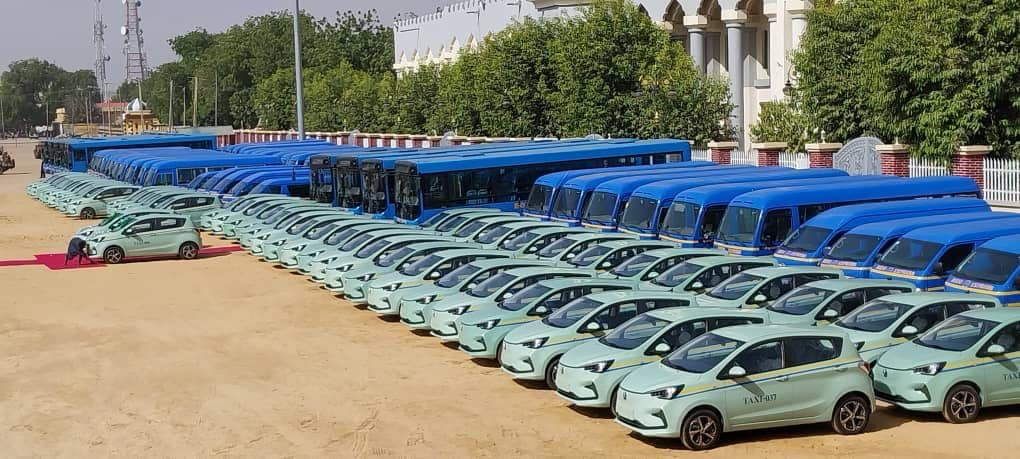
Governor Zulum’s electric taxis and buses aimed at alleviating fuel subsidy removal pains on Borno people
While some states, especially in the northern part of Nigeria have declared their shares of the palliatives, some states in the sourthern part have continued to systematically keep their citizens in the dark.
Recently, Governor Umaru Bago of Niger State commissioned 300 tractors, from the palliatives received from the Federal Government. He also promised to increase the tractor hiring unit to 3000, all in his bid to ensure food sufficiency and job provision for the state.
Other state governors from southern Nigeria should emulate their northern counterparts. They cannot continue to act like the lazy farmers who eats his seed yam, leaving nothing for the planting season.
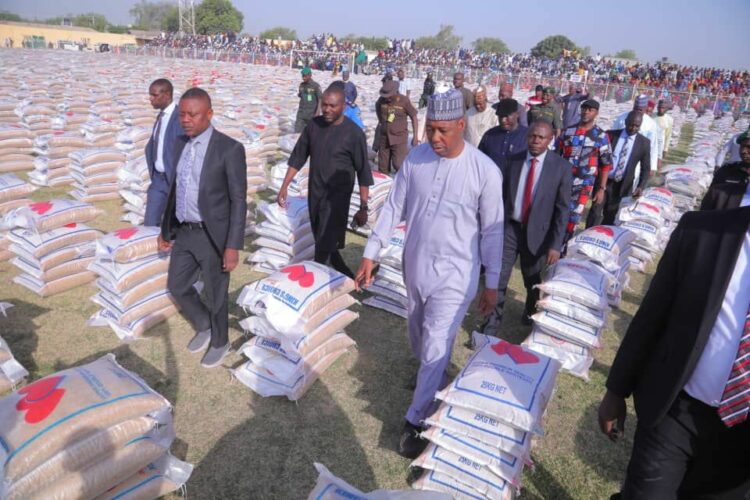
Governor Zulum distributing palliative food items
Only Ekiti and Lagos State have taken strategic steps to execute their agricultural revolution plans. Other should step up. In fact, there’s a need for Southern governors to form a coalition to traject the region as an agricultural hub.
Not too long ago, before the self serving NLC and members of the Civil Society took to the streets aimlessly, President Tinubu advised Nigerians that, if they must protest, they should direct the protest to the Governor of their states.
Also, the state governors from the south, in their crooked way for non disclosure, bullied the Senate President to retract his revelation that the sub-national governments have received about N30bn from the Federal Government for various interventions to ameliorate the food situation of Nigerians.
Whereas, Oyo State Governor Seyi Makinde hurriedly disputed the figure, his counterparts like Governor Umaru Bago of Niger and Borno State Governor, Babagana Umara Zulum, who yesterday flagged off the distribution of food items to over 100,000 households in Maiduguri Metropolitan Council (MMC) and Jere local government area of the State.
Earlier, the Borno State Government bought 120 buses, Seventy-Seven of them were launched in September 2023 to ply over 15 routes within the Maiduguri metropolis and Jere Local Government Area.
Zulum followed in December 2023 with the President Tinubu commissioned 107 electric/gas buses, and taxis in Borno State, as he seeks to cushion the impact of the fuel subsidy removal.
Before his recent efforts, he had approved the release of 312 tractors for allocation to farmers’ cooperatives in each of the 312 wards across Borno’s 27 local government areas.
It is only governors like Bago and Zulum that should receive the protection of NLC, Civil Society Groups, and students from protestations against misrule in Nigeria.
Any governor that will refuse to repair roads in their states because such roads were constructed by the Federal Government must be interrogated.
In particular, the NLC, the Civil Society Group and other protesting allies in Edo State, stands condemned for playing the ostrich to the cry of Edo farmers, who since 2019, have protested the diversion of the Central Bank of Nigeria agriculture loan by the Governor Godwin Obaseki’s administration.
The NLC and the selective protesters found it easier to pretend that the disaster that was waiting to happen over food shortage in Edo State was a figment of imagination.
They looked the other way when the farmers cried out and alleged that the proceeds from their rice were sold by the Edo State Government appointed ‘off-taker’ Saro farm, without remittances.
For over four years now, the protesters in Edo State have not deem it fit to ‘occupy’ the two branches of Sterling Bank in the state to demand for the CBN loan and by extention, farmers money that is trapped in the bank.
The only response response by Governor Obaseki to the economic hardship and food prices crisis is a ‘stakeholders meeting’ that he called to discuss the challenges. As usual, he spent his time lamenting the failure of Tinubu to repair roads in Edo State.
Before this time, Obaseki had deplored his half a dozen rickety ”Comrade Buses’ that he inherited from Senator Adams Oshiomhole’s administration, Eight years ago.
The Edo Civil Society Groups in Edo State and by extention, the opposition political parties must demand from Governor Godwin Obaseki what he has received on behalf of Edo people to ameliorate their hardship. This is the only way, their next call for protest will receive deserved applause.
The present hardship which has also been attributed to the devaluation of Naira, has also been traced to the dishonesty of some state governors who have resulted to the conversion of the increased allocation to foreign exchange.
A cursory study of the trend shows that, the Naira depreciates more any month the allocation from federation account is high.
Two groups that needs visitation by protesters across the country are the banks and state government house.


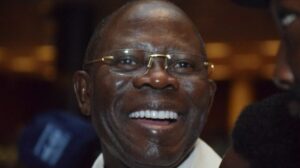
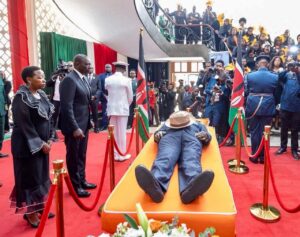

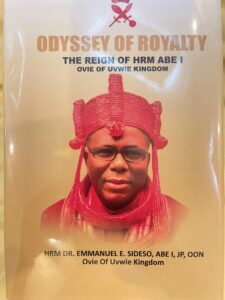
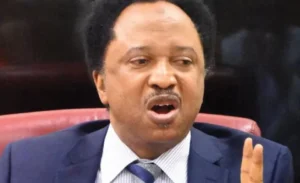
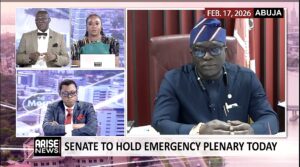
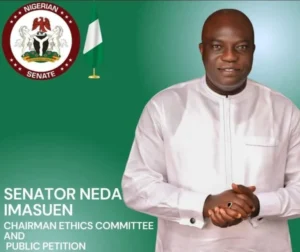

1 thought on “State of The Nation: Why Labour, Civil Society Should Confront State Governors”